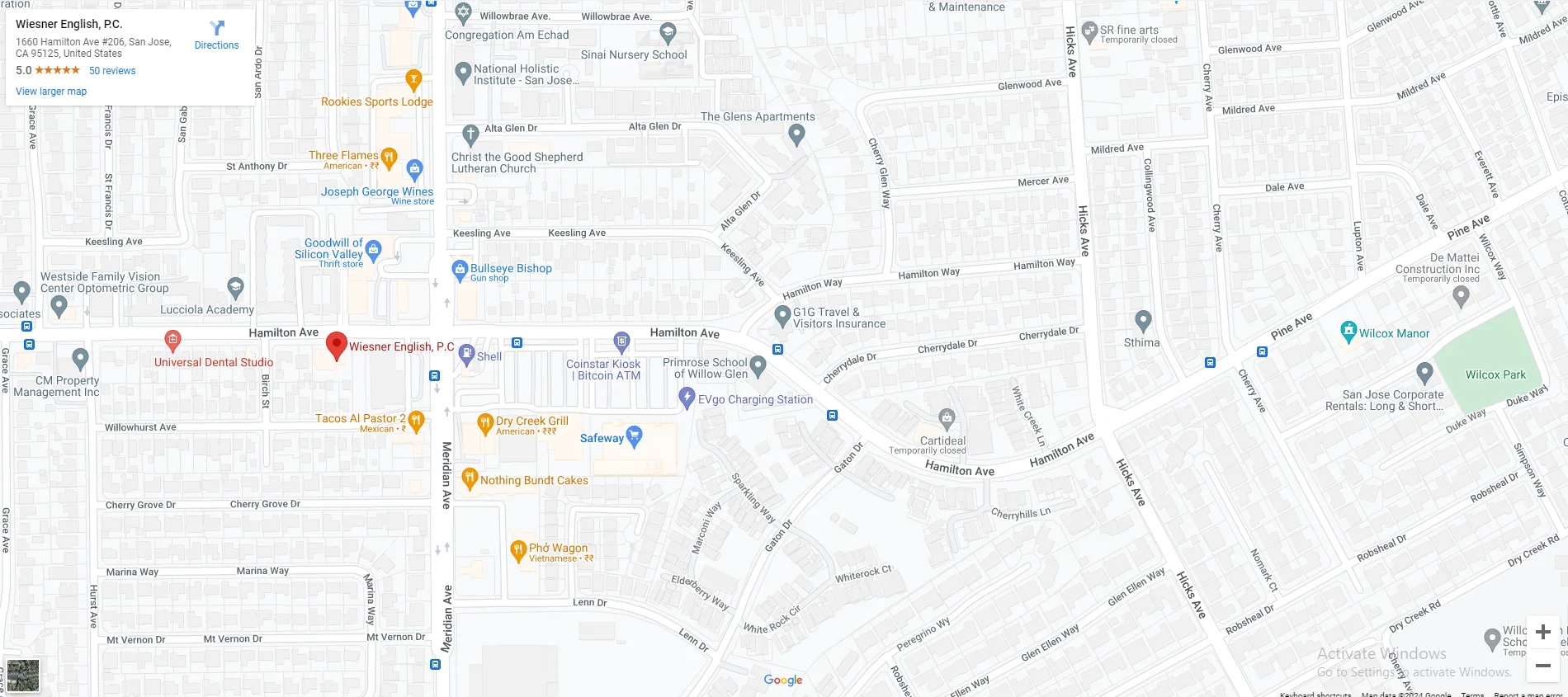|
|
Last Modified on Sep 04, 2025
If you have recently been injured at work, navigating the workers’ compensation process can feel like a nightmare at times. This is why understanding how to file a workers’ comp claim in California is essential to ensure you can receive the benefits you are entitled to by law. If you follow the correct steps and meet all deadlines, you can maximize your chances of a smooth claims process that yields the funds you are looking for without unnecessary delays.
The following are the key steps for filing a workers’ compensation claim in California to help you take the necessary actions to protect your health and rights under California employment law.
Step 1: Report Your Injury Immediately
The first step you need to take when filing a workers’ comp claim is to report your injury or illness to your employer. In California, you have 30 days to do this; however, you still want to report the injury as soon as you can. The longer you wait, you risk the insurance company arguing that your injury is not as severe as you claim. If you miss the deadline, you may forfeit your ability to seek compensation through the worker’s comp system.
Step 2: Complete and Submit the Claim Form
The DWC-1 form serves as the foundation of your workers’ comp claim. On this form, you will see sections for both you and your employer to fill out. You want to ensure you fill out your portion as accurately as possible, being very detailed when describing your injury or illness and how it happened. After completing this form, return it to your employer. They will then submit the information to their workers’ compensation insurance carrier for consideration.
Step 3: Seek Medical Treatment
Once your injury has been officially reported, it’s important to get the medical care you need to recover. Check with your employer, as there may be a list of doctors you must see under their approved medical provider network if you want the compensation system to pay for your care. Be sure to inform the medical provider that your injury is work-related so they can document their assessment accordingly.
Step 4: Follow Up With the Claims Adjuster
After your employer has submitted your claim, a claims adjuster from the insurance company will review the information. They may contact you for additional information or to schedule another independent medical evaluation to verify certain details about your condition. It’s important to fully cooperate with their requests and provide any outstanding information they need to avoid the process being delayed.
Step 5: Monitor the Claims Decision
The insurance company has 90 days to make a decision regarding your claim for compensation. During this time, they will likely conduct an investigation into the injury to help them evaluate whether it qualifies for workers’ compensation benefits. If your claim is approved, your benefits will begin right away. This will include medical coverage and wage replacement if applicable to your case. If the claim is denied, you have the right to appeal with your attorney.
Tips for a Smooth Workers’ Comp Claim Process
One of the most important tips for a smooth workers’ compensation process is to stay organized. Keep a detailed record of your injuries, medical treatments, and communications between you and your employer and their insurance company. Also, be sure you are adhering to your doctor’s treatment plan and attending all of your required appointments. Any deviation from this could suggest your injury is not as severe as you are claiming.
If you face any delays or denials, it’s important to know your rights. Because the average citizen in California is not well-versed in the laws surrounding workers’ compensation, hiring an employment law attorney can help bridge this gap and ensure your rights are protected. Ensure you are providing accurate and timely information to all stakeholders involved, especially the insurance company, to be cooperative and avoid unnecessary delays.
FAQs
What Are the Requirements for Filing a Workers’ Compensation Claim in California?
To successfully file a workers’ compensation claim in California, there are a few basic requirements that need to be satisfied. First, the injury or illness needs to be work-related. This is non-negotiable. You also must report the incident to your employer within 30 days by completing the DWC-1 claim form. On this form, you will describe your injury in detail and provide other necessary information to keep the process moving.
Can I File for Workers’ Compensation if My Injury Developed Over Time?
Yes, you can file a workers’ compensation claim for injuries that developed gradually under certain conditions. This is especially true for injuries like repetitive strains or illnesses that developed due to workplace conditions. If you have an injury or illness like this, it’s important that you file the claim as soon as you realize it is work-related. Provide as many details as you can about your job duties and how they contributed to the condition.
What Should I Do if My Employer Denies That My Injury Is Work-Related?
If your employer rejects the notion that your injury is work-related, it’s important to work with an attorney to gather more evidence to prove that it is. This can include detailed medical records, witness statements, and any other new documentation you can provide that shows how your injury occurred on the job. If you request an independent medical evaluation, this can also strengthen your case.
Do I Need an Attorney to File a Workers’ Comp Claim?
While you are not required to have an attorney to file a workers’ compensation claim, it is still highly recommended. An attorney can help you address disputes, negotiate with insurance companies, and ensure that you receive the extent of the benefits that are rightfully yours. They can also help you fight against any delays or denials you might experience.
Contact Wiesner English, P.C., Today
If you have recently been injured at work or need help dealing with a denied workers’ comp claim, contact our law firm today. We have the right team and experience you need to maximize your chances of obtaining the compensation you need.








